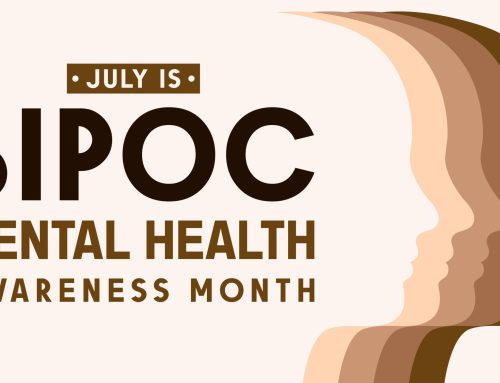November 1 is International Stress Awareness Day, and at MINES, we take this annual opportunity to talk to you about stress, what it looks like, and how you can manage it.
Over 80% of American employees are under work-related stress, and 1 in 4 say that work is the number one stressor in their lives. It’s clear that we’re facing a stress epidemic, and work is one of the culprits behind it. If you’re an employee who is under a lot of stress, you’re not alone – and there are steps you can take to combat it.
In this article, we’ll go over how to recognize the signs of stress, especially the lesser-known ones, so that you can take action.
What is stress?
First of all, what, exactly, is stress? Although it has a negative connotation, “stress” simply refers to the physical response we have when we’re faced with something that feels dangerous or overwhelming. And it’s not necessarily a bad thing – humans developed the stress response through years of evolution to help us combat threats.
Physical changes happen when this stress response is activated. For example, you may start breathing faster and your heart might start beating faster to get more energy into your limbs. Your senses, like hearing and smell, get more precise. These changes all serve to help you either fight or run from danger.
While the stress response itself is useful in certain situations, being under chronically high levels of stress is very harmful to your overall health. Short bursts of stress might help you at work – for example, stress might help you work diligently to meet a deadline – but when you’re always under stress, you’re less focused, less productive, and more likely to develop mental health problems like depression and anxiety.
That’s why it’s so important to notice what stress feels like in your body. There are many effective ways to manage chronic stress and take better care of your physical and mental health. But you can’t intervene if you don’t know how to recognize stress.
What are the hidden symptoms of stress?
Some more commonly known signs of stress include chronic fatigue and excessive worries. But sometimes, stress presents itself in ways that aren’t so obvious. It’s important to be aware of all of the different ways that stress can present itself so that you can recognize when you need support.
This is more important than ever in the modern age. Today, we’re expected to be constantly connected, especially when it comes to work. We may have forgotten what it feels like to be 100% at ease. This means that even if you don’t feel completely overwhelmed – at least consciously – you may be experiencing stress without even realizing it.
Some of the more hidden and lesser-known signs of stress include:
Catching a cold
Obviously, having a cold in and of itself doesn’t automatically mean that you’re under a lot of stress. But stress does wreak havoc on your immune system. This can make it easier for viruses and bacteria to make you sick while your guard is down.
If you’ve been catching more colds than usual, pause and reflect on whether or not your stress levels may be contributing to a weakened immune system.
Jaw pain
We tend to think of muscle tension as a common sign of stress, but it’s important to pay attention to your jaw, too! Many of us clench our teeth unconsciously when we’re stressed, so jaw pain or tension could be a sign that you’re clenching without realizing it. Bruxism – teeth grinding at night – can also be linked to stress.
If you have unexplained jaw or tooth pain, then it could be a sign of increased stress.
Forgetfulness and distractibility
Stress can also cause you to be more distracted than usual. Even if you aren’t ruminating on stressful thoughts, if you’re more forgetful than usual or getting distracted from important tasks, then take a look at how your stress levels could be contributing.
Using the bathroom more often
Frequent urination can be a sign of many different medical conditions, so it’s important to talk to your healthcare provider if you’re experiencing this symptom. But for some people, needing to go to the bathroom more often than usual can be a sign of high stress.
Weekend fatigue or headaches
You might think of stress-related fatigue or pain as something that only happens during times of active stress, like during your work week. But many people work through stress when they need to, only to experience an energy crash during the weekend. If you feel “fine” on workdays but have low energy or headaches on the weekend, then it could be a sign you’re stressed.
Arguments
Having occasional disagreements with family members or colleagues is normal. But if you’re arguing more than usual, or arguing with people you usually don’t argue with, then reflect to see if it could be caused by stress. Even if it feels like it’s the other party instigating the arguments, is it possible that you’re more irritable as a result of stress?
Irregular period
People who menstruate know that periods can often be irregular. While this isn’t always a sign of stress, stress is one reason why you could be having irregular periods. Especially if your cycle is typically regular, and it’s recently become irregular with no medical explanation, then this could be a sign of stress.
Sleeping too much
You might have heard that stress can cause insomnia (an inability to fall or stay asleep) or nightmares. But for some people, it can have the opposite effect – it can cause you to sleep too much. When under high levels of stress, you might feel the desire to escape from it all. Feeling overwhelmed can lead you to want to sleep as much as possible, even during the day.
More common signs of stress
On top of these “secret” stress signals, there are also the more common signs of stress to be aware of. These include:
- Unexplained muscle tension and pain
- Nightmares and difficulty sleeping (insomnia)
- Digestive issues like gas, nausea, or diarrhea
- Ruminating on stressful events or thoughts
- Physical signs of anxiety like a rapid heartbeat or sweating
- Low energy
- Decreased sex drive
How your EAP can help when you’re facing stress
If you’re enrolled in MINES & Associates’ Employee Assistance Program (EAP), you have access to 24/7 free and confidential counseling. Counseling could be the missing piece in your overall well-being. Our licensed counselors can help you learn how to recognize your own signs of stress and take active steps to reduce the stress you have in your life. If your stress levels have led to mental health problems like depression or anxiety, we can help with that too. It’s best not to ignore signs of stress because it may not go away on its own.
You can access MINES & Associates services here.
To Your Wellbeing,
The MINES Team












Leave A Comment